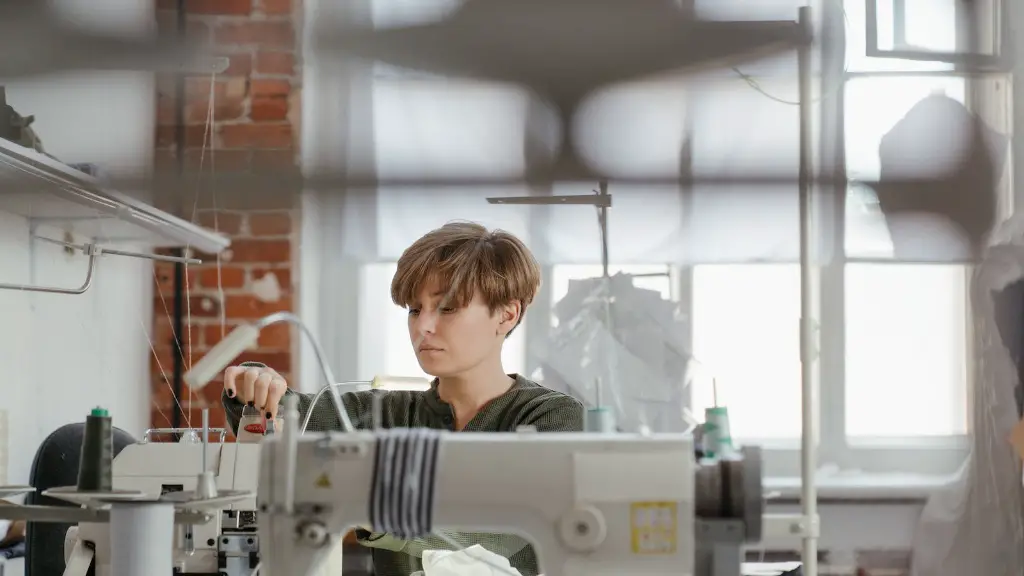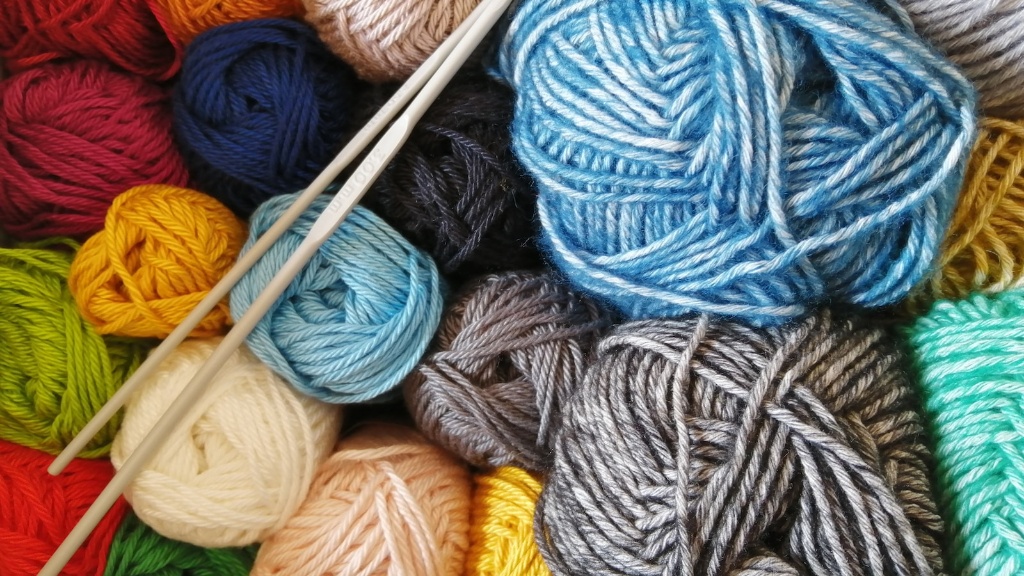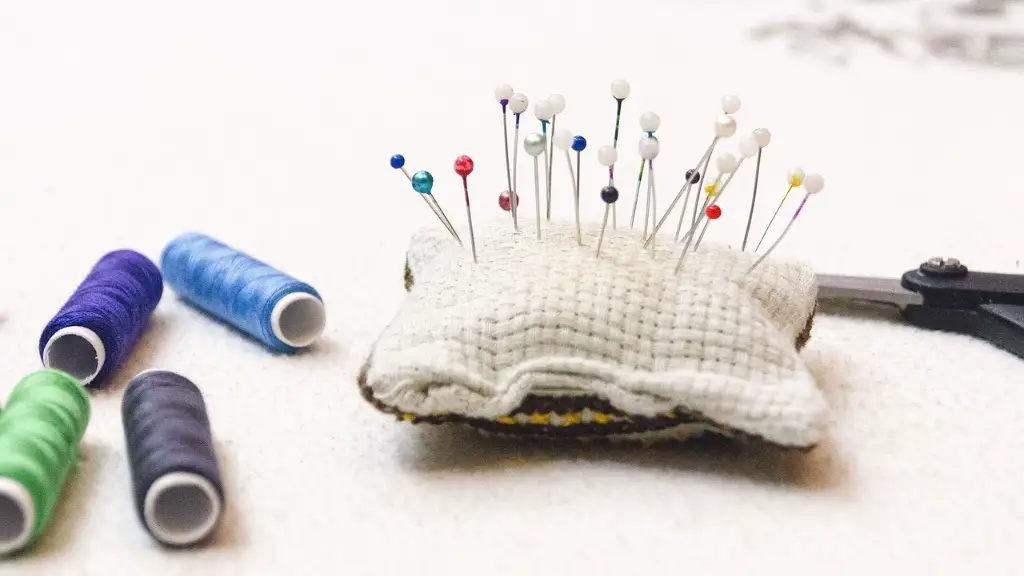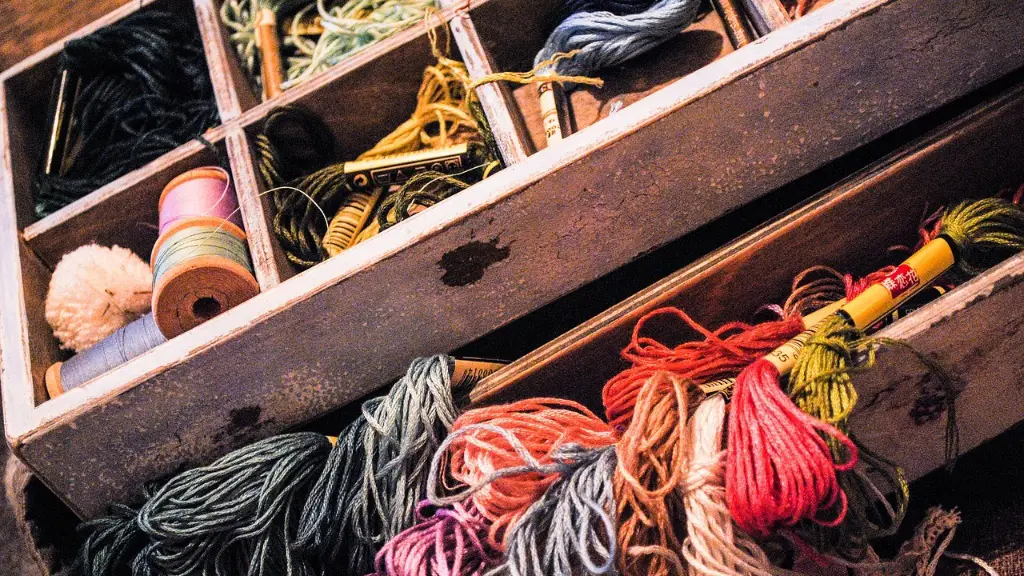Anyone considering taking up sewing should know that there are a range of invaluable tools available to get the job done, but one essential tool is thread. You can’t sew without it! Many people wonder if there is a special type of thread for a sewing machine, and the answer is yes. Special thread will give you the best results, both in terms of stitch quality and longevity.
Regular sewing thread comes in a range of fibers, such as cotton, linen, polyester, nylon, and other synthetics. Cotton thread is known to be the most suitable for hand stitching, but most people these days are using a sewing machine – or even a computerized machine – instead of hand-sewing. We recommend using polyester thread with these machines. It offers the perfect balance between strength and flexibility and reduces friction, which helps the top and bottom thread glide evenly.
The advantages of polyester thread go beyond just strength. It’s lightweight, easy to use, and can be found in all sorts of colors to match any project you may have. It’s also more elastic than other types of thread, which helps prevent seams from popping or splitting. Finally, polyester thread is less likely to fade, so your garments will stay looking the same for years.
The main thing to remember when selecting thread for a sewing machine is to always look for polyester variants that are specifically marked as “machine thread”. This type of thread has been designed to be compatible with the speeds of modern sewing machines and is perfect for any general sewing needs. In fact, when using polyester thread specifically labeled for machine use, your stitches will be stronger, smoother and last longer.
However, you may still need to use other types of threads in certain projects. For instance, many quilters prefer cotton thread as it allows for more control over the stitching process. It can also add a beautiful texture if the quilt is to be made with two-tone fabrics. Additionally, if you’re working on heavier fabrics like canvas, you may need to use nylon-wrapped polyester thread for added strength.
In summary, special thread for sewing machines is important, particularly when it comes to machine sewing. Polyester thread is the best choice for general sewing, but you should consider other threads depending on the fabric, project, or the kind of machine you’re using. Nonetheless, if you want the best results, always select machine thread specifically marked for your type of sewing machine.
Tips for Choosing the Right Thread for Your Sewing Machine
When selecting thread for a sewing machine, there are a few tips you should remember: First, be sure to read through the instructions manual that came with your machine. It will tell you the type of thread your machine is designed to use. Secondly, determine the fabric you’re sewing. Depending on the type of fabric, you may need thicker threads for heavyweight materials or finer ones for delicate fabrics. Thirdly, select the color of thread that best suits your project. Lastly, be mindful of the kind of stitches you need for your project. Different kinds of stitches may require different types of thread.
Pros and Cons of Sewing Threads
The main advantage to using specialized thread such as machine thread is that it offers superior durability and is less prone to damage than regular sewing thread. Additionally, you can be sure that the thread you’re using is perfectly compatible with your machine, which can help prevent it from breaking or malfunctioning due to incorrect threading.
The downside of using specialized machine thread is that it can be difficult to find in certain colors or designs. Since many people prefer to use colored threads to match their sewing projects, this can be a minor inconvenience. Additionally, it tends to be more expensive than traditional sewing thread, but that depends a lot on the quality of the thread.
The Impact of Thread Quality on Your Sewing Projects
The quality of the thread you choose has a major influence on the end results of your sewing project. Poor-quality thread can cause skipped stitches, snags and even breakage of the fabric. Additionally, it can also cause the project to take longer than expected and, ultimately, result in a less satisfactory final product. On the other hand, premium-quality thread ensures that stitches are stronger, smoother and last longer, making it well worth the extra money.
How to Properly Thread a Sewing Machine
To make the most of the thread you use in a sewing machine, you need to be sure that your machine is properly threaded. First, always make sure the Thread Holder is firmly locked in place. Then, wind the spool onto the Thread Holder and thread the upper part of your machine by passing the thread’s end through the Stitch Selector and the take-up Lever, then threading the Thread Guide located at the top of the machine. To finish, thread the lower part of your machine by going through the Bobbin Winder and then passing the thread into the Bobbin case. Finally, you can insert the Bobbin into the machine and pull out the excess thread.
Maintenance Tips to Keep Your Sewing Thread in Good Shape
Caring for your thread properly will ensure that it lasts longer. The best way is to keep it in a box in a cool, dry place away from direct sunlight. Additionally, you should avoid using scissors or other sharp objects to cut the thread as this can cause damage to the fibers. Finally, if you’re using multiple spools of thread, it’s a good idea to keep them from tangling. The best way to do this is to attach a label to each one as you’re using them.



